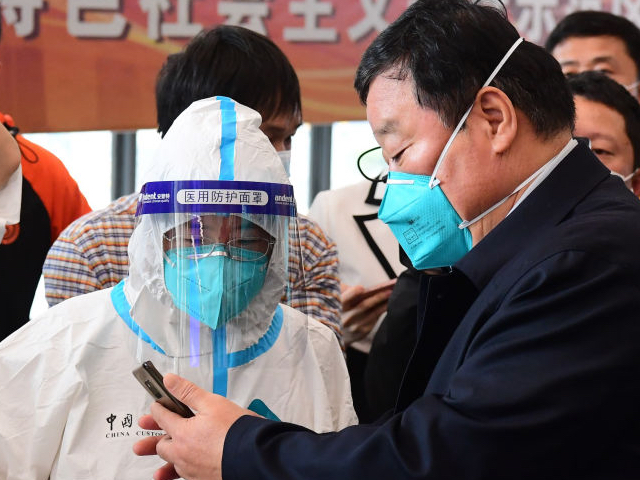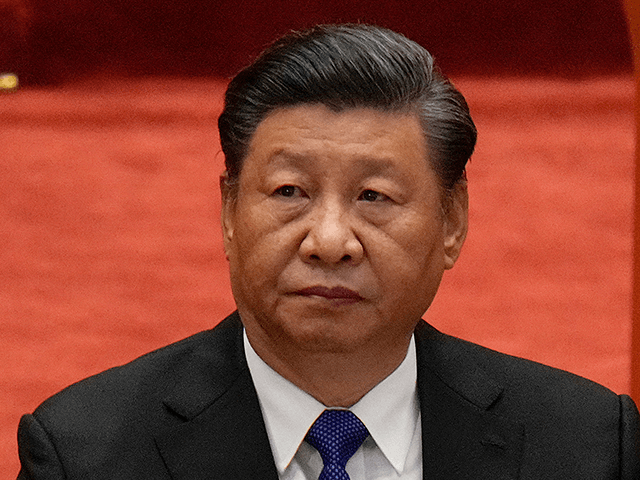The Hong Kong Journalists Association (HKJA) on Tuesday announced the Chinese Communist Party had barred at least ten local and international media organizations — including Reuters, Bloomberg News, AFP, and the South China Morning Post — from covering the 25th anniversary of the United Kingdom handing Hong Kong over to China.
HKJA chair Ronson Chan described the bans as “really perplexing,” since some of the affected media outlets are quite “courteous” to the Beijing-controlled administration of Hong Kong.
HKJA expressed its “utmost regret” over the “rigid reporting arrangements made by the authorities for such a major event” and said the decision “seriously undermines press freedom in Hong Kong.”
“It not only obstructs journalists from fulfilling their vocation, it also casts a smear on this major event with global attention,” HKJA said.
Some of the affected media outlets contacted the Hong Kong government to ask why they were banned but received no details.
The outright bans followed an earlier surprise announcement by Hong Kong’s Information Services Department (ISD) that only one journalist from each media outlet would be permitted at the key Hong Kong 25 ceremonies, instead of 20 apiece, as originally stipulated. The ISD said the reduced attendance requirement was necessary because of the ongoing coronavirus situation in Hong Kong.
The Foreign Correspondents’ Club of Hong Kong also denounced the media bans as a betrayal of the semi-autonomous island’s “stated commitment to press freedom,” especially since it was “enforced without detailed explanation.”
Security protocols for the July 1 event have been significantly tightened, in both Hong Kong and neighboring mainland city Shenzhen, as Chinese dictator Xi Jinping plans to attend the ceremonies.
Residents of Shenzhen reported on Wednesday that substantial parts of their city and its surrounding suburbs have been completely locked down to pave the way for Xi’s motorcade, while the skies above were declared a “no-fly zone.”

A customs officer checks the health QR code of Liang Wannian who leads a team of Chinese mainland medical experts at Shenzhen Bay Port on February 28, 2022, in Shenzhen, Guangdong Province of China. (Photo by Chen Wen/China News Service via Getty Images)
The South China Morning Post (SCMP) on Wednesday reported Shenzhen also suddenly decided to tighten its coronavirus protocols, require heavy mandatory testing, and shut down some public venues, even though “there have only been a couple of new cases a day.”
The implication was that local officials are using the coronavirus as an excuse to paralyze the city while Xi drives through, perhaps because they desire flexibility to accommodate any “last-minute changes” to Xi’s itinerary.
Hong Kong police said they were “duty-bound” to take all precautions to ensure Xi’s safety, including the establishment of tightly-controlled “core security zones” in every area Xi is expected to visit. Passenger aircraft and drones will be prohibited from entering these zones.
Assistant police commissioner Lui Kam-ho said he understood these measures would cause a “certain degree of inconvenience” but appealed to the Hong Kong public to “comply with the instructions of our officers at the scene, and to comply with the latest anti-epidemic and social distancing requirements in accordance with the relevant regulations.”
Hong Kong police also took the precaution of harassing activists who might have been tempted to hold demonstrations during the July 1 ceremonies. One of the island’s last active pro-democracy groups, the League of Social Democrats, said they would not hold any demonstrations.

COMMENTS
Please let us know if you're having issues with commenting.